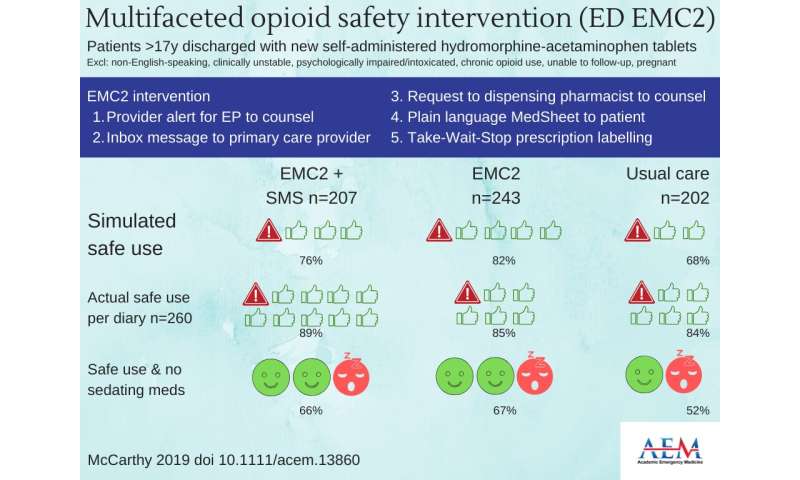

A study to evaluate the effect of an Electronic Medication Complete Communication (EMC2) Opioid Strategy on patients’ safe use of and knowledge about opioids found that the EMC2 tools improved demonstrated safe dosing, but these benefits did not translate into actual use based on medication dairies. The study findings are published in the December 2019 issue of Academic Emergency Medicine (AEM), a journal of the Society for Academic Emergency Medicine (SAEM).
The lead author of the study is Danielle M. McCarthy MD, MS, vice chair for research in the department of emergency medicine and associate professor of emergency medicine, Feinberg School of Medicine, Northwestern University, Chicago, IL.
The investigators implemented the best practices effort of “take, stop, wait” prescribing language, together with the added boost of text messaging, to educate patients on how to reduce overuse of opioids. Intervention improved demonstrated safe dosing of opioids, and the text-messaging intervention resulted in improved patient knowledge, however there was no influence of the intervention on actual safe medication use among the portion of the sample returning medication diaries.
The findings support the notion that possessing knowledge about medication risks is likely necessary but not sufficient to ensure safe use, as medication-taking behaviors are often influenced by complex factors (e.g. health literacy, self-efficacy, and attitudes) in addition to knowledge.
The authors suggest that future emergency department interventions may opt to focus on post-discharge communication as the greatest increases in knowledge in this sample were among patients receiving the text-messaging portion of the intervention.
Jason Haukoos, MD, professor of emergency medicine and director of emergency medicine research at the University of Colorado School of Medicine Anschutz Medical Campus, commented:
Source: Read Full Article